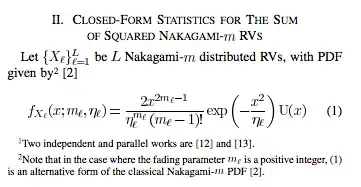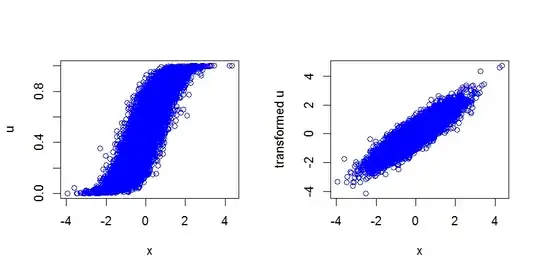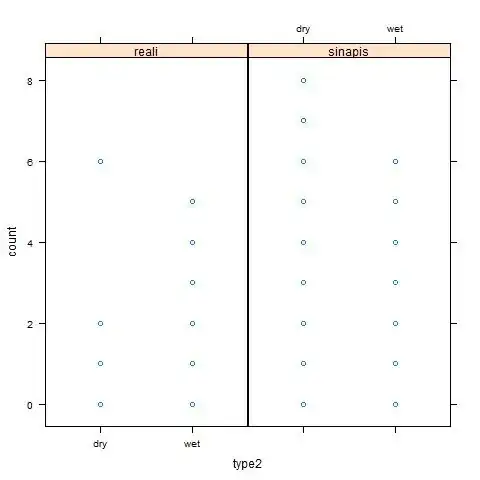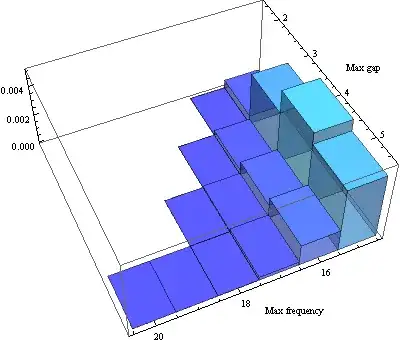I am trying to find the probability distribution function (pdf) of the following
$$Y=\big|\sum_i X_i\big|^2=\big|\sum_{i\leq 2} h_i \, a_i\big|^2 $$
with $$h_i\sim \text{iid} \operatorname{Nakagami}(m=3,1/3)$$ $$a_i \,\text{positive constants} \,\,\, \forall \,\,\, i$$
How I solve the problem
First I try to find the pdf of $$X=a\,h\sim \frac{1}{a}f_{h} (x/a)\sim \operatorname{Also a Nakagami}$$
So then I need to find the distribution of $$\sum_{i}X_i=?$$ and then the magnitude squared..
I am looking for a tractable approach to find the new pdf, but I am out of ideas!
If you feel this is ugly to derive, do you have any ideas to approximate it? I am out of ideas !!
Thanks for any advice.



